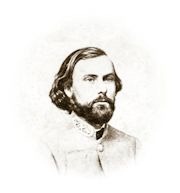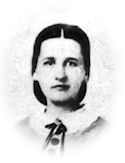Spottsylvania C. H., December 4, 1862.
We have reached what I suppose to be our destination after eleven days’ march, stopping but once on the route. The roads were good; the troops were in good spirits, and with moderate marching reached here but little exhausted. I really don’t know what we came for, as everything here is in a most profound state of quiet. The enemy are on the other side of the Rappahannock, showing but little, if any, signs of an intention to cross.
I am getting used to my new position, and, whilst I prefer that which I left, I can be contented here. I have no reason now to complain of a want of employment, but feel that I have more than I can do. I have found much that I would like to remedy, but have not the means to do it. Our soldiers are not clothed or fed now as they used to be. We are short of everything. I hope this winter that much may be supplied, and next spring we may be able to begin the campaign in fine condition.
We have bright, clear weather now, but it is the season when we may expect it not to last. Soon we shall have snow, bad roads, cold weather and the usual attendants of the season. I wish now we had the order to prepare for it and build such cheap huts as would shelter. Now very few of them have tents and many are thinly clad; some are barefooted and a few without blankets. I wish that I had the power to supply their wants, but I can do but little. Have you made up your mind, Love, when the war will be over? I am heartily sick and tired of it. If any one had told me, when it began, that I should pass through two years of it and reach the rank of Brigadier, with pay of $300 per month, it would have been a flattering prospect; but I feel now as if no rank or pay could induce me to be a soldier—nothing but necessity and a feeling that I am not a true man if I leave our cause for the comforts of home? I sometimes have been severely tempted to follow the example which many whom I thought good men have set in staying at home. But other and better impulses have controlled my conduct. When we were separated in times past, I could feel with some certainty that we should soon be together again. Not so now. When will it be, if ever? This is the question shrouded in impenetrable gloom. I would like to see through it. I would like to know when I should be at home again to spend my life with loved wife and children. God in his mercy grant that hope so fondly cherished may some day be realized! It may never be. Yet it is a fond hope which I cherish while life lasts.






